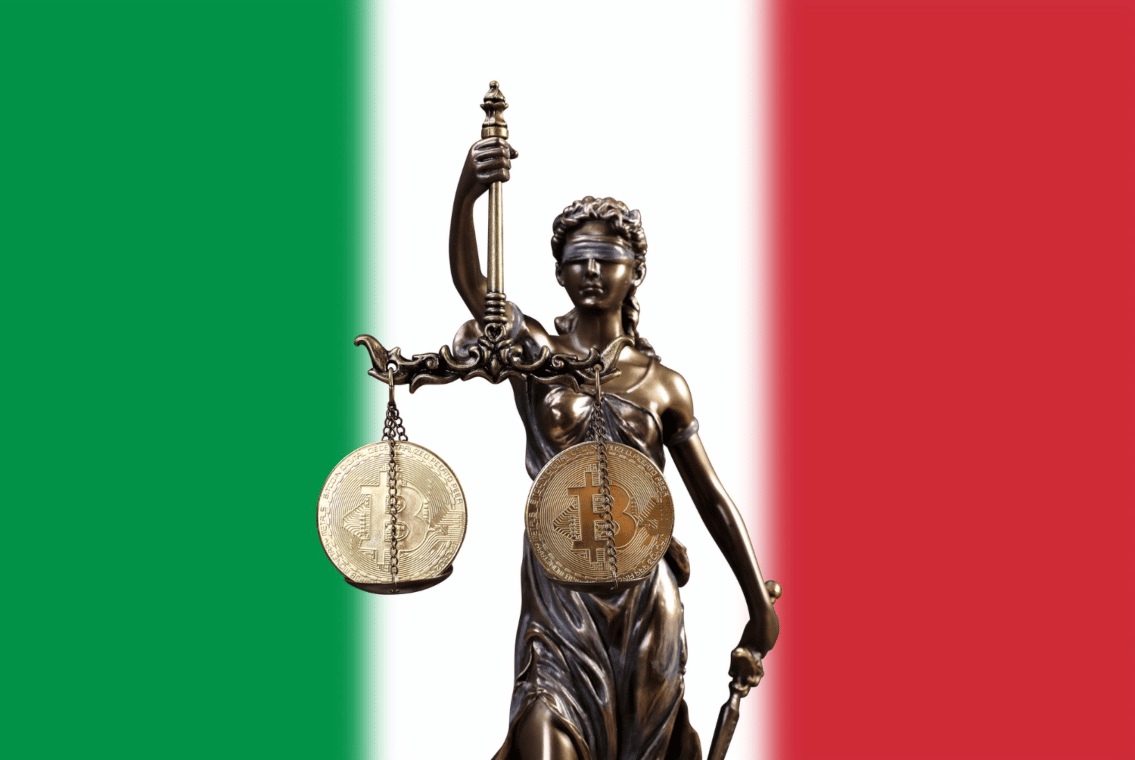Over the summer, the Italian “Agenzia delle Entrate” (Revenue Agency) went wild with a flurry of interpretative documents, which followed one another within a few days of each other between July and August, concerning the application of tax regulations on cryptocurrencies.
More precisely, these are three interpello responses (No. 956-448/2022, No. 957-221/2022 and No. 956-771/2022), i.e., measures in which the tax authorities provide their interpretation on specific questions posed by some taxpayers, in the presence of situations in which the regulatory framework is characterized by conditions of “objective uncertainty,” as stated in Article 11 of the Taxpayer’s Statute governing the right to interpellate.
In these documents (which are commonly referred to as practice documents), a number of issues are addressed that stand out because they raise the constant concerns of those who operate with cryptocurrencies: the first is that of the scope of tax monitoring obligations (i.e., the obligation to declare the holding of cryptocurrencies in the famous RW form). The second is that of the nature of the income that is obtained as profit from staking operations and therefore how it should be framed for income tax purposes.
These interpello answers have been talked about all around the web, by both experts and less experienced, in part because the tax authorities have given an indication on the mandatory declaration in the RW form that has been interpreted as a shift in favor of cryptocurrency holders: if cryptocurrencies are held in the wallets of an exchange platform under Italian law, says the Agenzia delle Entrate, it would not be necessary to declare them in the RW form because they would not be considered as foreign assets.
With the heated comments calming down, let’s try to get to the bottom of the situation.
Summary
Crypto taxation in Italy: the RW form
Partly because, it would seem that every time the tax agency ventures into providing interpretations concerning cryptocurrencies, instead of offering a contribution of clarity and certainty, it ends up spreading even more doubts and confusion, resulting in agitation among taxpayers, be they operators or simple users.
In this case too, the Italian tax agency’s answers have left behind a trail of doubts, perplexities and uncertainties.
Now, before examining individually the issues and arguments put forward by the Italian tax agency, it is necessary to clarify well the value and scope of this type of documents.
These kinds of acts, which are commonly referred to as documents of practice, do not have the value of a normative source: they are not a law, nor are they a regulation. Nor do they have the strongly conditioning value of a case law precedent. They do not bind the taxpayer in any way. Actually, they do not bind the individual offices of the Agency either. Thus each of them, finding itself dealing with an audit or inspection in which an issue similar to that addressed in one of these practice documents arises, can safely decide in an entirely different manner than the solution provided by a previous response to an interpellation.
These documents, therefore, have a merely guiding value.
Indeed, it is not uncommon for the solutions provided within these types of acts to later be disregarded by the offices themselves when they conduct an audit, or to be refuted by the jurisprudence of the substantive tax courts or even the Supreme Court.
The only cogent effect they can have is in favor of the taxpayer and is related to the principle of taxpayer reliance provided for in Article 10 of the Taxpayer’s Statute (Law 212/2000).
Paragraph 2, in fact, provides that:
“Penalties shall not be imposed or default interest demanded from the taxpayer if he/she has complied with indications contained in acts of the tax administration, even if subsequently modified by the administration itself.”
Essentially, if a taxpayer engages in certain conduct, complying with the indications of one of these practice documents, even where the tax authorities accrue a different interpretation from that previously expressed, to which the taxpayer (clearly relying on it) has adhered, then no penalties can be imposed on the taxpayer nor interest charged.
Any taxes due, however, remain due.

The interpretation of the tax authority, amid truths, doubts and perplexities
Therefore, suppose for example that a practice document states that a certain tax, under certain conditions, should not be paid, and the taxpayer, trusting the goodness of this indication, does not pay it. If the agency later changes its mind and determines that that interpretation was wrong, and so that tax under those conditions actually has to be paid, the taxpayer may be required to pay that tax (assuming it has not become time-barred in the meantime), but no penalty may be levied and no interest will be due.
That said, despite the modest value of these kinds of documents, it is quite natural that their issuance creates a certain amount of buzz, because in the crypto world confusion and regulatory vacuum reign supreme, and thus attention to any kind of indication is spasmodic.
Thus, in the first of the three documents, one of the issues was whether or not such a declaration had to be made in case the wallet was managed by a trading platform under Italian law.
In this case, there’s actually a kind of twist, with respect to the Agency’s tendency to expand (even unreasonably and mostly unjustifiably) the scope of the taxpayer’s tax obligations.
In the case of filling out the RW form, most will recall that in its answer to interpellation 788/2021, the Agency had stated quite recently that it does not matter where the private keys are held, and that even if they are held in Italy, by a person who is tax resident here, the obligation to make a declaration would exist in any case.
How this conclusion was reached was not explained.
The new approach seemed to be corroborated by a no less questionable line of jurisprudence: ruling 1077/2020 of the Lazio Regional Administrative Court, which affirmed that virtual currencies would qualify as assets to be declared in the RW form.
To tell the truth, most have missed the fact that the ruling did not state at all that they should be declared in any event. That is to say, it can also be interpreted to mean that such assets are to be declared only if and when they are located abroad. In fact, that ruling does not explicitly address the question of when virtual currencies should be considered held abroad or in Italy, but merely qualifies them as assets subject to the application of monitoring obligations.
Well, in its response to interpello 956-448/2022 (renumbered for publication as 433/2022), the Italian Revenue Agency affirmed that the taxpayer is not burdened by the monitoring obligations entailing the need for declaration in the RW form when he or she relies on Italian-registered platforms with tax residence in Italy.
On the one hand, this guideline is based on the assumption that the private key is in the full possession of a person resident in Italy; on the other hand, it is based on the assumption that in relation to the platform the taxpayer simply has a right of credit but would not be the holder of a qualifying foreign patrimonial or financial asset.
The reasoning deserves further exploration.
How to deal with crypto held on a platform under Italian law
The second part of the reasoning, i.e., the notion that a taxpayer relying on a platform under Italian law would be the holder of a mere right of a compulsory nature (arising from a specific contractual relationship) and not a holder of patrimonial or financial assets, certainly seems sensible and supportable.
It is clear that when the platform actually holds a cryptocurrency, because it is associated with wallets to which the platform itself has the access keys, on that cryptocurrency the end user has only the right for the execution of orders (assignment, conversion, transfer, etc.), which, however, he or she does not execute directly, but rather give rise to obligations on the part of the platform to the user, based on the contract in place between these two parties.
This, however, also opens up a question about relations with foreign platforms: if it is true that the contractual relationship that is established with the platform implies that the taxpayer is not the holder of patrimonial or financial assets, but only the holder of civil obligations, this must apply, no more and no less, as much to relations with Italian platforms as with foreign platforms.
What to do in case the assets are held in foreign platforms
If these are foreign platforms, in order to understand whether there is an obligation to declare in the RW form, the focus must necessarily shift from cryptocurrencies to the contractual relationship.
As a result, it will be necessary to understand whether that specific contractual relationship, depending on how it is structured, may fall within the scope of Art. 4 co. 1 Decree Law No. 167/1990 (later converted into Law No. 227/1990) and therefore should be made to fall under “investments abroad or foreign assets of a financial nature, susceptible to generating taxable income in Italy.”
This specific issue, until now, has never been analytically addressed.
It is easy to think that the Italian tax authorities will embrace an interpretation that aims to include contractual relationships with foreign platforms in the scope of monitoring obligations, but a very broad field of discussion opens up, in which very supportable interpretations are possible that go in the diametrically opposite direction.
Let’s now turn to the first part of the argument: namely, the one according to which the monitoring obligations would also not be triggered by the fact that the private keys of the wallets are held by a platform that is registered for tax purposes in Italy, thus not abroad.
This concept changes everything, because it gives relevance to the question of whether private keys are held in Italy or abroad for the purpose of qualifying as foreign the location of the asset constituted by virtual currencies and, consequently, the existence or non-existence of the reporting obligation.
Now, in the first place, the assumption thus recently affirmed by the Revenue Agency, goes in direct opposition to the previous orientation expressed in the interpello response […]: here, in fact, it is stated that cryptocurrencies must be declared period. Regardless of the location of the holding of private keys, whether in Italy or abroad.
Second, if the principle applies to platforms with tax domicile in Italy, why should it not apply to all legal entities, other than platforms, that have tax domicile or residence in Italy, including the individuals who hold them?
Doubts overlap with doubts, the origination of which tells us how urgent clarification at the legislative level is.
As anticipated, the issue of monitoring obligations is not the only one addressed by this flurry of responses to interpellations.
We will address the remaining issues with the next publication of this column.




